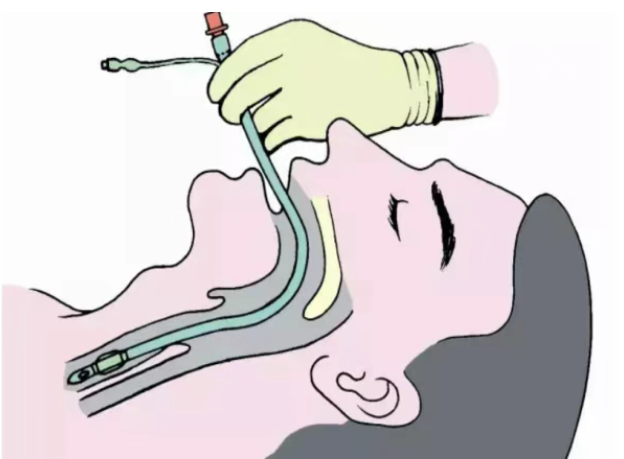Alcohol allergy is an abnormal immune response of the human body to ethanol and its metabolites. Clinical manifestations include itching, erythema and even breathing difficulties, which can be life-threatening in severe cases. This allergic reaction is closely related to the genetic constitution, enzyme metabolism defects, and alcohol additives. It is very important to understand its mechanism and master scientific coping methods.

Analysis of pathogenesis and causes
The core mechanism of alcohol allergy lies in the allergic reaction mediated by immunoglobulin E (IgE). When people with allergic constitution consume alcohol, ethanol is metabolized into acetaldehyde in the liver by alcohol dehydrogenase. If the activity of this enzyme in the body is insufficient, the accumulation of acetaldehyde will stimulate vasodilation. At the same time, additives such as fusel oil and sulfites in alcohol may act as haptens, combining with proteins in the body to form complete antigens, triggering mast cells to release inflammatory mediators such as histamine, leading to increased capillary permeability, causing skin erythema and mucosal edema. Genetic factors account for about 40% of alcohol allergies, and those whose parents have a history of allergies have a 3-fold increased risk. In addition, methanol impurities in industrial alcohol inhibit the cytochrome P450 enzyme system and increase the metabolic burden.
Clinical manifestations :
Alcohol allergy is divided into two types:
Immediate type (type I allergic reaction): It usually occurs within 5-30 minutes after drinking, and is manifested by systemic wheals and laryngeal edema, and may be accompanied by a sudden drop in blood pressure to below 80/50 mmHg, requiring immediate intramuscular injection of epinephrine.
Delayed type (type IV allergic reaction): appears 2 to 72 hours after contact with alcohol, mainly characterized by erythema and itching on the trunk, which appear as strip-like raised areas after scratching and need to be differentiated from urticaria.
Be alert to complications of "alcoholic stomach": those with repeated allergies may suffer from gastric mucosal damage, manifested as fullness after meals, upper abdominal pain, and black stools. Under gastroscopy, pitting erosions in the gastric antrum can be seen, and the positive rate of carbon 13 breath test is as high as 68%, indicating an increased risk of Helicobacter pylori infection.
First aid treatment process :
On-site assessment :
Mild: only skin symptoms, no breathing difficulties
Severe cases: laryngeal gurgling, confusion, systolic blood pressure <90 mmHg
Basic life support :
Keep lying on your side and clear your oral secretions
High-flow oxygen inhalation (10-12 L/min), monitoring SpO₂
Open the intravenous channel and give dexamethasone 10mg + vitamin C 3.0g intravenous drip
Diabetics use xylitol to replace glucose to avoid inducing ketosis
Type treatment :
Skin contact: Rinse with running water for 15 minutes, do not use hot water
Ingestion: After inducing vomiting, give 250 mL of 20% mannitol as a laxative. Morphine-like analgesics are prohibited.
Severe allergies: Treat in sequence: epinephrine 1 mg intramuscularly → glucocorticoids → antihistamines
Qingfu Zhiyou
tincture (containing Sophora flavescens and Cnidium monnieri) can be applied externally 3 times a day; in the chronic stage, Jingfang lotion (30g of Schizonepeta tenuifolia, 30g of Saposhnikovia divaricata, 15g of Pueraria root) can be used for a foot bath, with the water temperature at 38-42℃, for 20 minutes each time. Acupuncture points Quchi and Xuehai are selected, and the method of equal tonification and equal drainage is used. The needle is retained for 20 minutes, which can reduce serum IgE levels by 27%.
Patients with chronic diseases: For those who are taking nifedipine, alcohol can increase the antihypertensive effect by 40%, so the medication regimen needs to be adjusted.
Children: The alcohol metabolism enzyme system of adolescents is not perfect, and trace amounts of alcohol can cause severe allergies. Parents need to strictly supervise
Prevention and treatment of alcohol allergy require the establishment of a full-cycle management awareness of "prevention-first aid-rehabilitation". It is recommended that people with allergic constitutions carry an epinephrine auto-injector with them and avoid high-risk behaviors such as driving and working at heights within 24 hours after drinking. Genetic testing can be used to identify the type of metabolic defect and develop personalized intervention plans to significantly reduce the frequency of allergic attacks. For more information on Innomed®Wound Skin Closure, Refer to the Previous Articles. If you have customized needs, you are welcome to contact us; You Wholeheartedly. At longterm medical, we transform this data by Innovating and Developing Products that Make Life easier for those who need loving care.
Editor: kiki Jia

 English
English عربى
عربى Español
Español русский
русский 中文简体
中文简体








